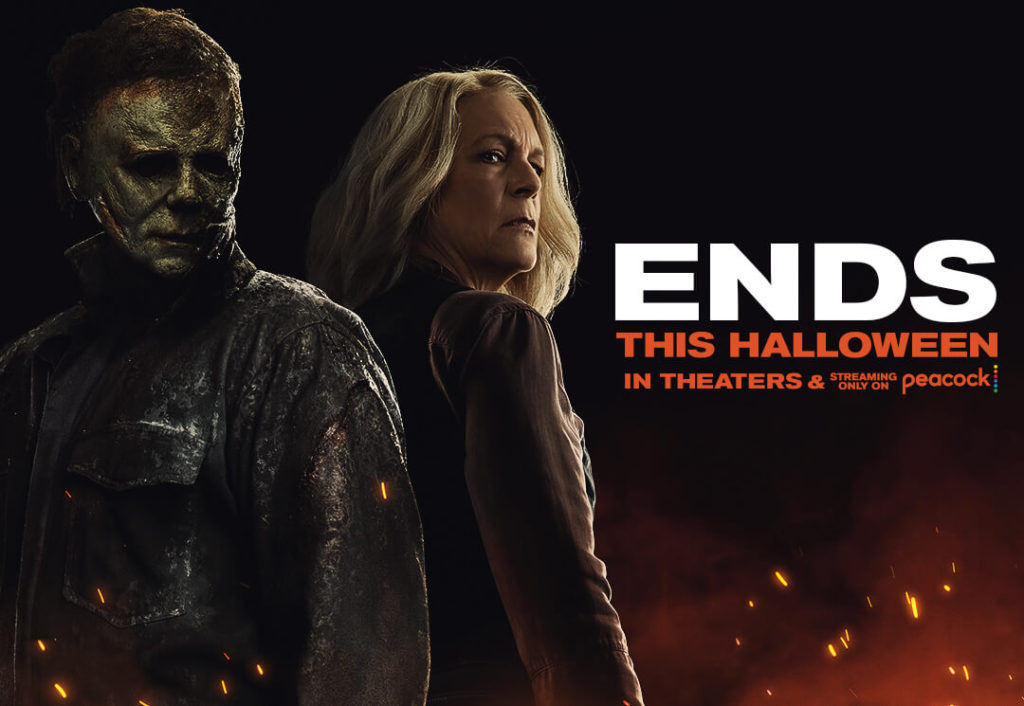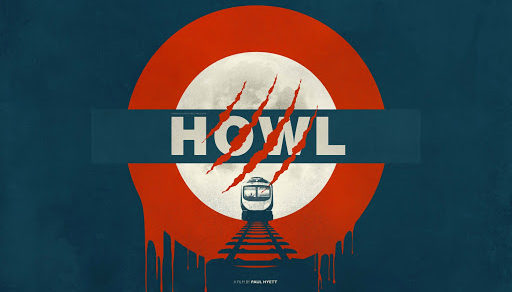
Halloween Ends
Directed by David Gordon Green
Spoiler Free: A baffling misfire, Halloween Ends can’t decide if it wants to bring the Halloween series in a new direction or pay tribute to its roots, and in the end, it does neither well. Full of breathtakingly bad dialogue and nonsensical characters, a good cast can’t redeem a lackluster ending to this trilogy.
In 1978, Halloween instantly changed the landscape of horror movies, spawning countless imitators and ripoffs, but none of them could match the brilliance of the story of Laurie Strode surviving the night that he came home. Tight writing, nerve-destroying cinematography, and iconic music are all remembered fondly, but it was the more subtle things that made Halloween stand out. The mystery, the intrigue, the unanswered questions about fate, the nature of evil, and the human response to it; have all birthed dozens upon dozens of fan theories and explanations for why exactly Michael Myers and Laurie Strode were what they were. I’m not familiar with all of these theories, some are good, some not so good, but I can say with certainty that all of them are better written than Halloween Ends.
Spoilers Begin Here:
Taking place four years after Halloween Kills, for reasons I couldn’t possibly fathom, Halloween Ends tells a love story between Laurie Strode’s granddaughter and new character Corey Cunningham. No, that’s not a joke, that’s the damn movie. Laurie Strode stopped being a survivalist, got therapy, quit drinking, and is now a homemaker/writer in Haddonfield. That’s not a joke either. With Michael Myers having disappeared after Halloween Kills, for reasons never explained, the town of Haddonfield never let go of the paranoia that he brought. When Corey accidentally kills a child (who was a little asshole so I felt no emotion) he is treated as Haddonfield’s new monster, treatment that pushes Corey into painful isolation. After a distressing encounter with some shitty Marching Band kids (not a joke) Laurie Strode introduces Corey to her granddaughter and the two bond over being social outcasts. Haddonfield doesn’t take too kindly to Corey attempting to be happy, and after a fateful encounter with Michael Myers in the sewer where Michael Myers has been living for the past four years, Corey begins to learn the ways of the slasher villain.
You might have some questions. Questions like; how does this relate to the previous Halloween movies? Why did Michael Myers disappear for four years? Is there some sort of special connection between Corey and Michael Myers? Why establish that Michael Myers is magic and then never follow that up? Why are the people of Haddonfield such assholes? Why don’t any of the people who hate Haddonfield so much just leave? Why does sleepy little Haddonfield suddenly resemble an urban hellscape? And finally, wasn’t this just the plot of The Joker? None of these questions are answered. Except for The Joker thing. Because that answer is yes.
I don’t think I have to explain why it was so disappointing to have the finale of the trilogy completely reset the timeline, character relationships, and character growth established in the previous two movies. Major character change happening offscreen is something that generally annoys me, but it is acceptable in some circumstances, particularly when there is a large time gap between movies, which the 2018 Halloween reboot used to its advantage. Laurie Strode is different in the 2018 film because she’s an adult dealing with all her issues, not a frightened teenager, but goes from Halloween Kills where Laurie Strode is struggling to get out of her hospital bed to fight Michael Myers directly to Laurie completely readjusting to normal life is such character whiplash that this seems like a sequel to a different movie. If this change was always the plan then there needed to be major changes in Halloween Kills, because it feels even more like a holding pattern than before.
Moving forward with the story of Corey being treated like a monster by the town of Haddonfield and that treatment turning him into a monster doesn’t necessarily mean the movie has to be bad, but that requires some great care, as this concept is not at all related to anything in Halloween prior. Michael Myers was a normal child until he killed his sister. Corey seems like a normal guy, and the death of that child seems like a genuine accident. There’s some lip service in Halloween Ends from characters saying that Corey has ‘the eyes of a killer’ or some stupid shit, but we see exactly how this kid dies, we see Corey’s remorse and self-loathing, and we see how everyone in town treats him. There’s a nugget of an idea in here, the idea of Haddonfield being so wrapped up in their Myers hysteria that they’re taking it out on unrelated people, but it’s so underdeveloped and only results in a generic murder-for-revenge plot.
Man-made monsters and vengeful murder can be executed well, and to be fair all the actors here seem to be giving their all to make this work, but this is all seriously undermined by some of the worst dialogue I’ve heard since the Star Wars prequels. Every other line is some variation of the phrases; “This town is so terrible!”, “I know you’re a killer at heart, Corey!”, “Laurie Strode you are somehow responsible for Michael Meyers’ rampages!”, or “Everyone hates me, I am destined to be alone!” is all bad enough, but the straw that breaks the camel’s back is when someone offscreen unironically quotes the Nietzsche line about how ‘he who fights monsters should not become monsters’, as if the conflict here is so high-minded and philosophical that the only way to discuss it is through quotes. If this were a short film I could see the dialogue being a bit more terse and direct, but it’s incredibly monotonous and hard to take seriously when these are all repeated so much.
To be clear, yes, eventually Michael Myers and Laurie Strode have their final confrontation. It is very quick and pretty unsatisfying, with most of the action, of the last five minutes of the movie, by the way, being already revealed in the trailers. Laurie kills Michael. With no special plan, no big set pieces, or tricks up her sleeve, Laurie just kills him in a fight. Underwhelming, but almost redeemed by the surreal final sequences where Laurie chains Michael Myers’ corpse to her car and parades it through town, leading everyone to the junkyard where she throws his body into an industrial shredder so that he will definitely never return. Oh, I forgot to mention. Corey dies, rendering all the build-up about his character meaningless and negating any plot that was building.
I would have loved to have been a fly on the wall during this writing process. Green insists that this was all ‘always the plan’ but that just sounds like nonsense. These divergences from the typical Halloween themes could have worked if they were more clearly foreshadowed in the previous movies, or if the dialogue and character writing was better, but everything is a muddled mess here, and that’s pretty sad considering that this was supposed to be the final conclusion of a story more than forty years in the making. I know there isn’t really a chance that this is the final Halloween movie, but that could be a good thing. Halloween III didn’t even have Michael Myers in it and it was pretty good, and that route may have been what Green was going for but had to include Michael Myers for whatever reason. That’s just speculation of course, but the bottom line is Halloween Ends isn’t worth your time. If you have to see it, wait for it on streaming.



Recent Comments